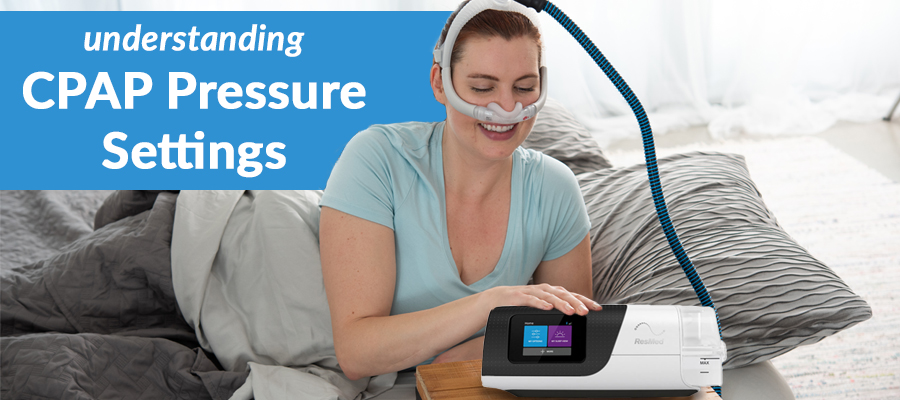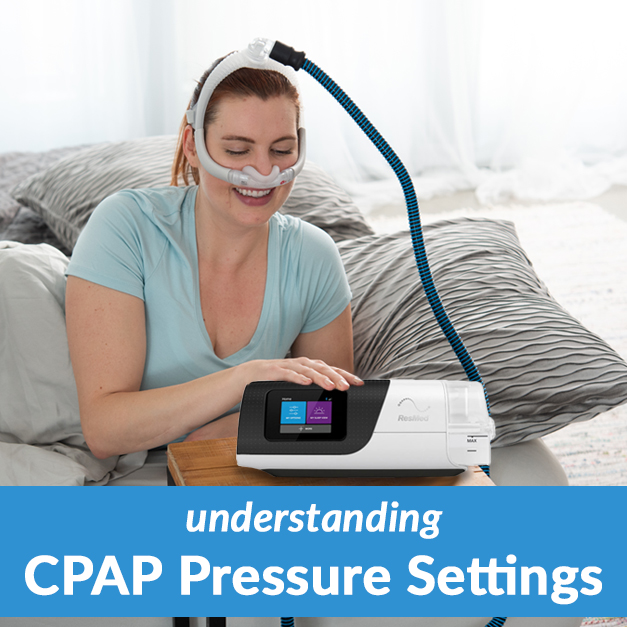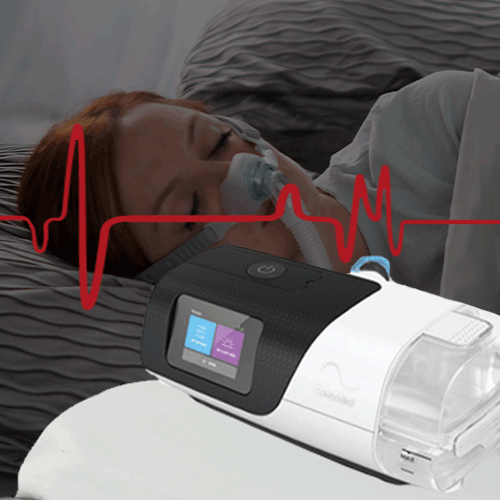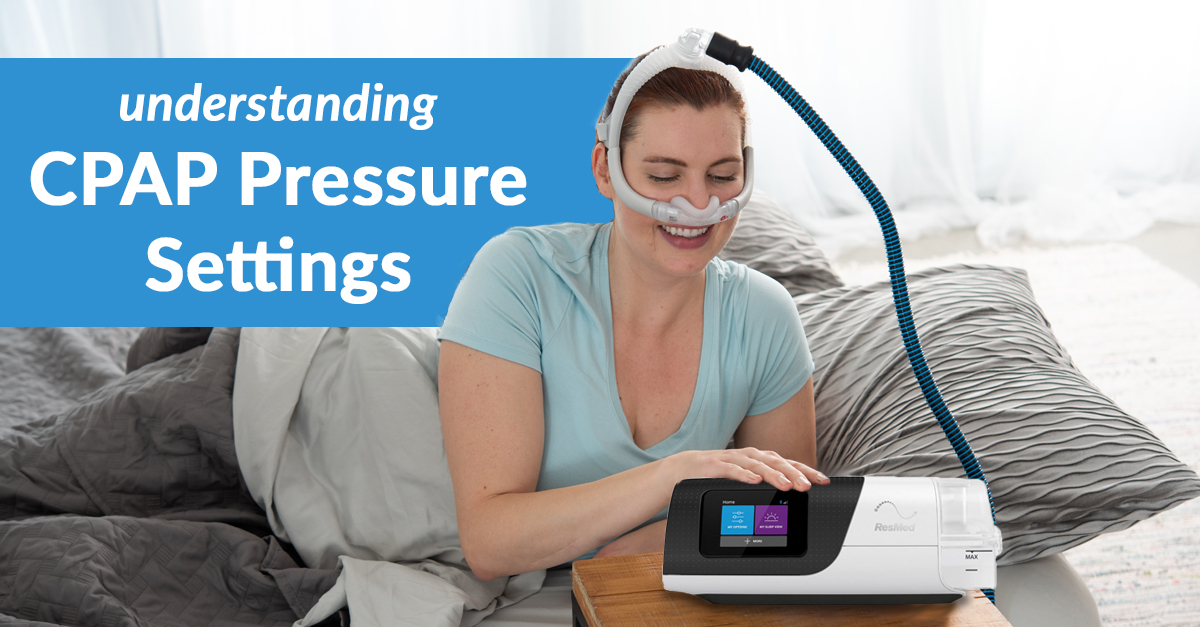

How Your Pressure Affects Your CPAP Therapy
Your CPAP pressure is one of the most important factors in ensuring effective sleep therapy. The pressure setting dictates how much air is pushed into your airways. These settings are prescribed based on your specific needs and are crucial for keeping your airways open during sleep.
If the pressure is dialed in correctly, your CPAP therapy will be most effective, allowing you to enjoy restful sleep, increased energy levels during the day, and reduced health risks associated with untreated sleep apnea.
What Happens if Your CPAP Pressure is Too High?
If your machine’s pressure is set too high, you might experience symptoms such as:
- Air Swallowing (Aerophagia): Excessive air pressure can cause you to swallow air, leading to bloating, gas, and abdominal discomfort.
- Dryness: You may notice increased dryness in your nose, throat, or mouth, even if you’re using a humidifier. The high pressure forces more air than necessary, which can dry out your airways.
- Difficulty Exhaling: Some users may find it harder to exhale against the high pressure, which can cause interrupted sleep and lead to frustration or non-compliance with therapy.
Over time, if these issues persist, you may be less likely to stick with your CPAP therapy, leading to untreated sleep apnea symptoms and worsening health outcomes.
What Happens if Your CPAP Pressure is Too Low?
On the other hand, if your CPAP pressure is set too low, your therapy may not be effective. When the pressure isn’t high enough to keep your airway open, you might experience:
- Continued Apneas: The lower pressure may not be sufficient to prevent airway collapse, causing apneas or hypopneas (partial blockages), which means you’re still at risk for interrupted breathing throughout the night.
- Poor Sleep Quality: If your pressure is too low, your sleep won’t be fully restorative. You may wake up feeling tired, groggy, and irritable, just as you did before starting therapy.
- Health Risks: Over time, ineffective therapy can lead to long-term health complications such as high blood pressure, heart disease, and a higher risk of stroke.
How Auto CPAPs Eliminate the Guesswork
One of the best advancements in sleep apnea treatment is the Auto CPAP. Unlike standard CPAPs, which operate at a fixed pressure, Auto CPAPs automatically adjust their pressure settings throughout the night based on your needs. Here’s why Auto CPAPs like ResMed’s AirSense 11 are particularly useful:


- Real-Time Adjustments: If you experience an apnea event, the machine will increase the pressure to keep your airway open. Once your breathing stabilizes, the machine will lower the pressure to a more comfortable level.
- Eliminates Guesswork: The machine continuously monitors and adapts to your needs, making therapy more effective and comfortable.
- Better for Changing Needs: Your CPAP needs can change due to weight fluctuations, aging, or other factors. Auto CPAPs eliminate the need for constant pressure adjustments or additional sleep studies.
- Real-Time Adjustments: If you experience an apnea event, the machine will increase the pressure to keep your airway open. Once your breathing stabilizes, the machine will lower the pressure to a more comfortable level.
- Eliminates Guesswork: The machine continuously monitors and adapts to your needs, making therapy more effective and comfortable.
- Better for Changing Needs: Your CPAP needs can change due to weight fluctuations, aging, or other factors. Auto CPAPs eliminate the need for constant pressure adjustments or additional sleep studies.
Get the newest Auto CPAP on the market for just $399 down today.
Just authorize your payment info via the link sent to your email after ordering.
The AirSense 11 could be yours for $0! Allow us to check with your insurance provider for you to find out what CPAP supplies are covered (for free!). Click below to get started:
Need Help Setting Your CPAP Pressure?
If you’re experiencing discomfort or feel like your CPAP pressure settings might not be right for you, don’t hesitate to reach out to us at (866) 564-2252! Our team of experts is here to help you adjust your settings and ensure you’re getting the most out of your therapy. Contact us today for personalized support and advice, and sleep better knowing your therapy is optimized just for you.










